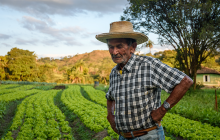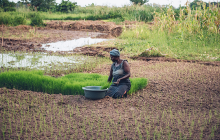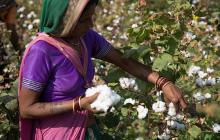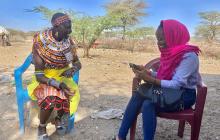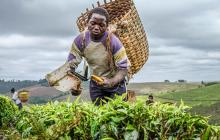Higher temperatures and more extreme weather are linked to increased conflict and increases in food insecurity. Climate change, resulting in a larger likelihood of droughts, floods, and other environmental disasters may thus have major implications resulting in negative economic consequences, especially for marginalized populations, including in various areas already suffering from humanitarian crises.
Climate shocks, such as floods and droughts, may also result in a setback in global gains towards gender equity. Massive job losses, shrinking of economies, loss of livelihoods, and weakened social protection systems caused by the COVID-19 pandemic and restrictions showed how vulnerable and exposed marginalized populations are to these environmental disasters.
Our Work
AIR’s work is closely associated with ongoing challenges related to climate change and programs to increase the resilience of marginalized populations to climate change. AIR uses climate data from multiple sources to create domain models. AIR conducts randomized controlled trials and quasi-experimental studies to determine the impact of social protection and agriculture programs on climate resilience.
Recent examples of our work include:
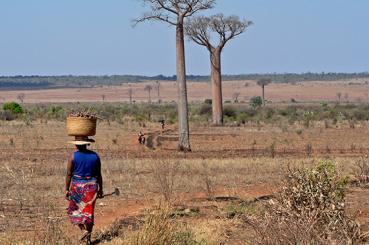
Famine Early Warning Systems Network (FEWS NET)
USAID's FEWS NET project is a leading provider of early warning and analysis on acute food insecurity around the world. AIR is supporting FEWS NET by managing a data warehouse and overseeing, maintaining, and improving the FEWS.NET website.

Food Security Third Party Monitoring (FSTPM)
Monitoring vulnerability, food insecurity, and the impact of humanitarian response in some of the world’s most crisis prone locations, the Food Security Third Party Monitoring project provides critical, near real-time analysis to support targeting of life-saving support in some of the world’s most crisis-prone locations.
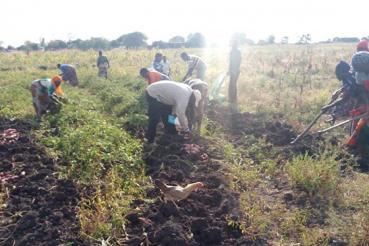
Orange-Fleshed Sweet Potato and Maternal and Infant Health Program in Tanzania
The evaluation of the Orange-Fleshed Sweet Potato and Maternal and Infant Health Program in Tanzania assessed mechanisms to increase long-term adoption of biofortified, drought-resistant, vitamin A rich sweet potato varieties to improve food security in the face of climate change.

Millennium Challenge Corporation, Kosovo Reliable Energy Landscape Project
AIR is evaluating the Millennium Challenge Corporation's Kosovo Reliable Energy Landscape project, which addresses barriers to consumer investments in energy efficiency to reduce the gap between electricity demand and supply.


